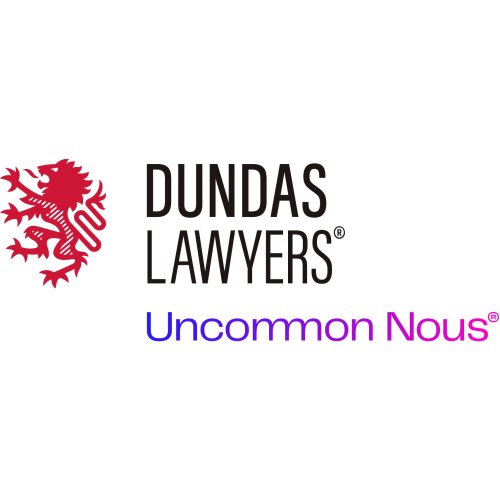Best Media, Technology and Telecoms Lawyers in Australia
Share your needs with us, get contacted by law firms.
Free. Takes 2 min.
Or refine your search by selecting a city:
List of the best lawyers in Australia
About Media, Technology and Telecoms Law in Australia
Media, Technology and Telecoms (MTT) law in Australia is a dynamic and evolving field that governs the rapidly growing sectors of telecommunications, media services, and digital technologies. This area of law encompasses a wide range of legal disciplines, including intellectual property, data protection and privacy, broadcasting regulations, consumer protection, and competition law. With the surge in digital platforms and technologies, the legal framework continues to adapt to address the challenges and opportunities presented by technological advancements and global connectivity.
Why You May Need a Lawyer
People and businesses may require legal assistance in MTT for various reasons, including:
- Compliance with broadcasting and telecommunications regulations.
- Protection of intellectual property rights in digital content and technology.
- Data protection and privacy concerns regarding the collection and use of personal data.
- Contractual disputes involving technology vendors, digital platforms, or service providers.
- Guidance on consumer protection laws for digital products and services.
- Legal issues arising from defamation or media publications.
- Regulatory issues related to emerging technologies such as AI, cloud computing, and IoT.
Local Laws Overview
Australia’s legal framework for media, technology, and telecommunications includes several key legislations:
- Telecommunications Act 1997: Regulates the provision of telecommunications services, infrastructure, and consumer protection standards.
- Broadcasting Services Act 1992: Governs the control of broadcasting and content standards in Australia.
- Privacy Act 1988: Provides comprehensive guidelines for the handling of personal data by organizations.
- Competition and Consumer Act 2010: Ensures fair trading and competition, focusing on consumer rights in the digital marketplace.
- Copyright Act 1968: Protects the rights of creators in works such as literature, music, films, and software.
- A range of regulations and guidelines issued by the Australian Communications and Media Authority (ACMA) and the Office of the Australian Information Commissioner (OAIC).
Frequently Asked Questions
What is the role of ACMA in telecommunications regulation?
The Australian Communications and Media Authority (ACMA) is responsible for regulating broadcasting services, setting standards for telecommunications services, and ensuring compliance with legislation and codes of practice in the media and telecom sectors.
How does Australia protect consumer privacy online?
The Privacy Act 1988 provides a legal framework for protecting personal information in Australia, addressing how organizations should collect, store, and protect consumer data, along with rights about access and correction.
What are the key components of data breach notification in Australia?
Under the Notifiable Data Breaches (NDB) scheme, organizations must inform affected individuals and the OAIC about data breaches that are likely to result in serious harm as soon as possible.
How can I protect my intellectual property in Australia?
To protect intellectual property, consider registering copyrights, trademarks, and patents, and implementing contractual agreements for confidentiality and licensing arrangements.
What are the responsibilities of Internet Service Providers (ISPs) under Australian law?
ISPs have obligations regarding consumer privacy, content regulation, and cooperation with law enforcement, including data retention and providing lawful access to communications.
Are there specific laws related to social media use in Australia?
While there are no laws specifically for social media, existing laws, including defamation, privacy, and competition laws, extend to social media platforms and online interactions within Australia.
What should I do if I suspect a violation of my copyright online?
If you suspect copyright infringement, you can take actions such as sending a cease and desist letter, using takedown notices, or seeking legal recourse through the courts.
How is defamation addressed in Australian law?
Defamation law in Australia aims to protect individuals from unwarranted damage to their reputation while balancing freedom of expression. The Defamation Act 2005 provides the legal framework, and cases can be pursued in state or territory courts.
What constitutes unfair competition in Australia's tech industry?
Unfair competition can involve misleading advertising, false representation, and anticompetitive practices that violate the Competition and Consumer Act 2010, with oversight by the Australian Competition and Consumer Commission (ACCC).
What are the legal considerations for developing an app in Australia?
When developing an app, consider aspects of intellectual property protection, data privacy compliance, adherence to consumer protection laws, and obtaining necessary licenses or permits.
Additional Resources
For further information and assistance, consider exploring the following resources:
- Australian Communications and Media Authority (ACMA)
- Office of the Australian Information Commissioner (OAIC)
- Australian Competition and Consumer Commission (ACCC)
- Copyright Agency
- Communications Alliance
- Legal consultation through local law firms specializing in MTT law
Next Steps
If you need legal assistance in the field of Media, Technology and Telecoms in Australia, consider the following steps:
- Identify your specific legal needs: Clearly outline the legal issue you are encountering to facilitate targeted assistance.
- Seek expert legal advice: Consult with a lawyer specializing in MTT law to gain insights into your case and potential solutions.
- Utilize available resources: Leverage governmental and organizational resources to understand the legal landscape.
- Draft necessary legal documents: Work with your lawyer to draft or review legal documents guarding your interests.
- Stay informed of updates: Follow legal and technological developments that might affect your situation or industry.
Engaging with knowledgeable legal professionals and institutions is essential to navigating Australia's complex media, technology, and telecommunications legal environment effectively.
Lawzana helps you find the best lawyers and law firms in Australia through a curated and pre-screened list of qualified legal professionals. Our platform offers rankings and detailed profiles of attorneys and law firms, allowing you to compare based on practice areas, including Media, Technology and Telecoms, experience, and client feedback.
Each profile includes a description of the firm's areas of practice, client reviews, team members and partners, year of establishment, spoken languages, office locations, contact information, social media presence, and any published articles or resources. Most firms on our platform speak English and are experienced in both local and international legal matters.
Get a quote from top-rated law firms in Australia — quickly, securely, and without unnecessary hassle.
Disclaimer:
The information provided on this page is for general informational purposes only and does not constitute legal advice. While we strive to ensure the accuracy and relevance of the content, legal information may change over time, and interpretations of the law can vary. You should always consult with a qualified legal professional for advice specific to your situation.
We disclaim all liability for actions taken or not taken based on the content of this page. If you believe any information is incorrect or outdated, please contact us, and we will review and update it where appropriate.
Browse media, technology and telecoms law firms by service in Australia
Australia Attorneys in related practice areas.
Browse media, technology and telecoms law firms by city in Australia
Refine your search by selecting a city.










